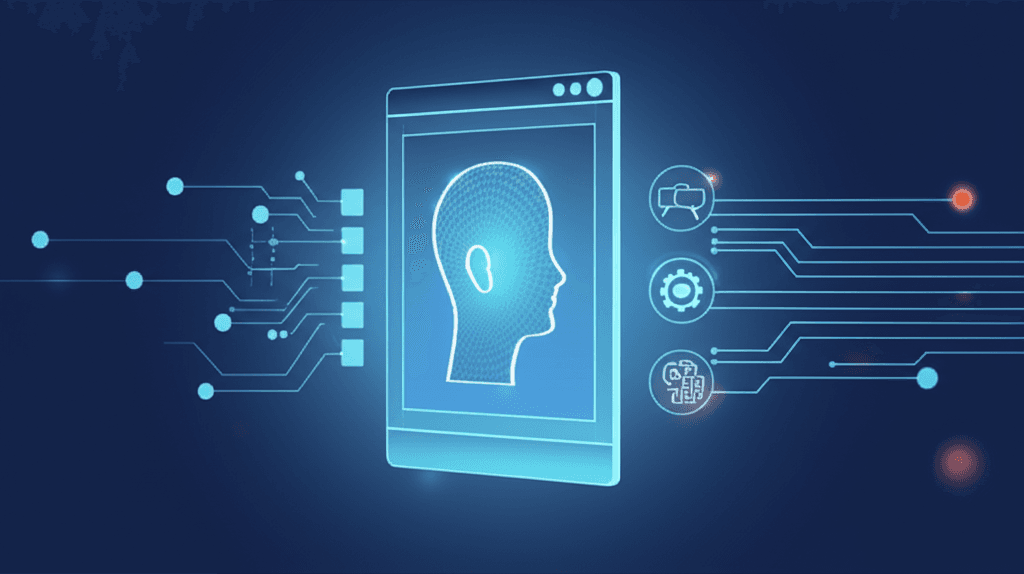Opera Unveils Neon: First Fully Agentic Browser for AI-Driven Web
Opera's Neon browser ushers in the 'agentic web,' allowing AI to seamlessly chat, do, and make on your behalf.
May 28, 2025

Norwegian browser company Opera has unveiled a new iteration of its Neon browser, conceptualized from the ground up to navigate the burgeoning "agentic web," a landscape where AI agents are expected to play a increasingly significant role alongside human users.[1][2] This new Opera Neon is positioned as a "fully agentic browser," designed not merely as a window to the internet but as an active participant capable of understanding user intent and autonomously performing tasks.[3][2] The initiative signals Opera's ambition to redefine the browser's role in an era increasingly shaped by artificial intelligence and to establish itself as an innovator in this evolving space.[3][1]
The core premise behind the revamped Neon is to create a browser that caters to both human interaction and the operational needs of AI agents.[2] This moves beyond simply integrating AI tools into an existing browser framework, as seen with features like sidebar chatbots.[4][2] Instead, Opera Neon aims to be a platform where AI agents can perceive, interpret, and interact with web content to execute tasks on behalf of users, such as filling out forms, making online purchases, booking trips, or even generating reports and creative content.[3][1][5] Opera envisions Neon as a foundational technology for Web 4.0, or the "agentic web," an ecosystem where humans and AI agents interact seamlessly.[2] This development reflects a belief that future web interaction will involve AI not just as assistants for search or summarization, but as autonomous entities performing complex actions.[2][5]
Opera Neon is being introduced with three core functionalities, often described as "Chat, Do, and Make."[4][5][6] The "Chat" function provides a conversational AI interface, similar to what users might expect from current AI chatbots, allowing for contextual queries about web pages, information retrieval, and even image generation.[7][5][6] The "Do" function leverages an AI agent, previously showcased by Opera as "Browser Operator," to automate tasks.[1][5][6] This agent can interact with web pages by understanding their structure through layout data and the Document Object Model (DOM) tree, rather than relying on screen scraping.[3][2][8] This local processing approach is highlighted by Opera for its privacy and security benefits.[1][2] The "Make" function represents a more ambitious step, enabling the browser to create content such as websites, animations, game prototypes, or reports based on user prompts.[3][4][1] For complex or time-consuming "Make" tasks, Neon can utilize cloud-based AI agents, allowing processes to continue even if the user goes offline.[3][1][9][10] This cloud component connects to Opera's servers in Europe, which the company notes operate under robust privacy laws.[3]
The development of Neon is part of Opera's broader strategy to integrate AI deeply into the browsing experience.[8][5] The company has previously introduced its Aria AI assistant into its standard browsers and has been experimenting with AI Feature Drops, including local LLMs and image generation.[4][8] Neon, however, represents a more fundamental reimagining of the browser's purpose, positioning it as a proactive partner rather than a passive tool.[2] This move also places Opera in a competitive field where other major tech players are exploring AI-driven browsing. Google, for instance, has been previewing "Project Mariner," an extension adding web-surfing agent capabilities to Chrome, and OpenAI has also been reportedly working on its own "Operator" mode.[3] The Browser Company has also announced an AI browser with agent-like features.[11] Opera Neon will be offered as a premium subscription product, and potential users can currently join a waitlist for early access.[4][1][2] This subscription model suggests Opera is targeting users willing to pay for advanced AI capabilities and a fundamentally different browsing experience.[4][9]
The unveiling of Opera Neon carries significant implications for the AI industry and the future of web interaction. By designing a browser specifically for AI agents to navigate and act upon web content, Opera is laying down infrastructure for a more automated internet. This could accelerate the development and deployment of AI agents for a wide range of tasks, potentially transforming industries like e-commerce, research, and content creation.[5] However, the concept also raises questions. The reliability and accuracy of AI agents performing complex tasks like booking travel or making purchases are critical, as errors could have tangible consequences.[3] User trust will be a key factor, and Opera emphasizes that users remain in control, with the AI agent's steps being transparent and reviewable.[7][12] Security and privacy are also paramount, particularly with AI agents handling personal information and performing actions on a user's behalf; Opera’s emphasis on local processing for some tasks and secure European-based cloud servers for others aims to address these concerns.[3][1][2][8] The success of Neon and similar agentic browsers will depend not only on their technical capabilities but also on navigating these ethical and practical challenges, and ultimately, on whether users embrace the vision of an internet where AI agents act as autonomous partners.[3][9]